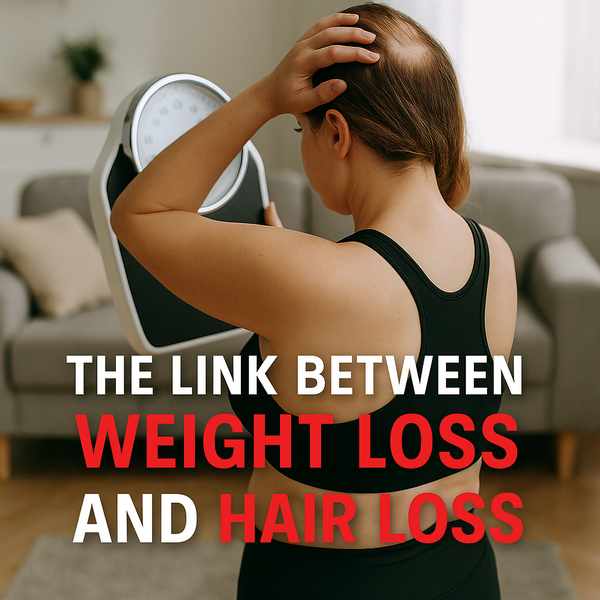
So what’s the connection between weight loss and hair loss, and how can you manage both successfully?
Understanding why this happens and how to protect your hair can help you reach your goals without compromising your confidence.
The Link Between Dieting and Hair Shedding
When your body undergoes a major change — especially fast weight loss — it can respond by pausing non-essential functions like hair growth.
Common causes include:
- Nutrient deficiencies
- Extreme calorie restriction
- Shifts in metabolism or thyroid function
- The body reacts to sudden changes
Temporary Hair Loss Explained
It’s a temporary condition where hair enters the shedding phase prematurely.
Key facts:
- There’s a delay between cause and effect
- No bald patches, just thinning
- It often resolves on its own
Nutrients Critical for Hair Health
If you're trying to lose weight, be sure not to miss these nutrients:
- Essential for hair structure and growth
- Iron
- Biotin and other B vitamins
- Supports hair tissue repair and growth
- Vitamin D
Skipping meals or using crash diets can easily lead to deficiencies that trigger hair loss.
Yes — With the Right Strategy
It’s possible to do both by following a balanced and mindful approach.
Tips include:
- Lose weight gradually
- Focus on whole, balanced meals
- Consider a multivitamin
- Both affect hormones and hair health
- Stay hydrated
How to Manage Hair Loss During Your Journey
If you notice excessive shedding:
- Don’t panic
- Check for deficiencies or thyroid issues
- Replenish what’s missing
- Try gentle hair care
- Hair regrowth takes a few months
When to See a Professional
A doctor or dermatologist can help identify underlying issues like:
- A common cause of both weight and hair changes
- Autoimmune conditions
- Severe nutritional deficiencies
Conclusion
Weight loss and hair loss can be gastric sleeve hair loss connected, but they don’t have to be permanent partners.
Prioritize nourishment, patience, and consistency, and your body will thank you — from head to toe.